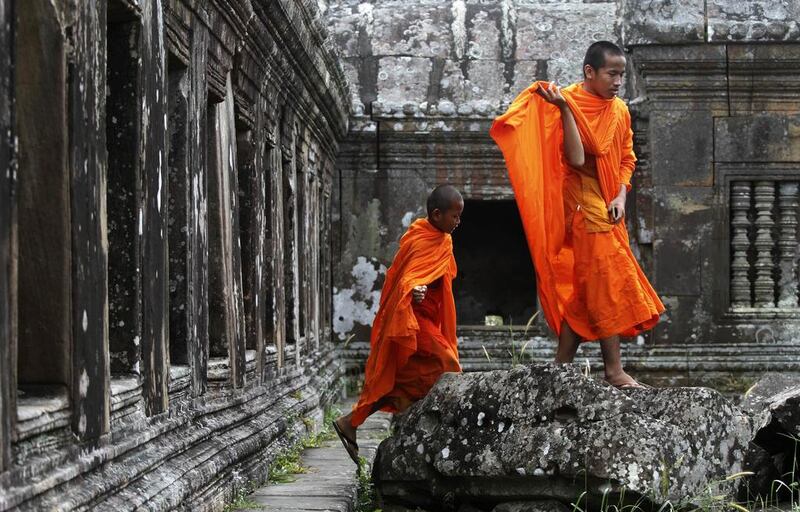THE HAGUE // Cambodians dug bunkers and evacuated homes yesterday after the United Nations’ highest court said Cambodia has sovereignty over promontory around a 1,000-year-old temple that Thailand also claims.
In a unanimous decision, the International Court of Justice said that a 1962 ruling by its judges gave Cambodia sovereignty over the Preah Vihear promontory and said Thailand was therefore “under an obligation to withdraw from that territory the Thai military or police forces or other guards or keepers that were stationed there”.
The issue inflames nationalist sentiment in both countries, not least because both governments, experts say, have used it to drum up support or as a distraction from domestic politics.
“We have already prepared our bunkers in case Thai troops open fire,” So Phany, a vendor near Preah Vihear temple, said.
Other villagers along the border with Thailand left their homes altogether.
“We have to take proactive measures. I will leave my home for a few days, we fear that Thai troops might cause clashes,” said Va Vy, 29.
Asked for his initial reaction to the ruling, the Cambodian deputy prime minister and foreign minister Hor Namhong said at the court, “It’s good enough.”
The court granted Cambodia sovereignty over the temple, a world heritage site, in 1962 and said Thai forces were obliged to withdraw from the temple “or in its vicinity on Cambodian territory”.
Cambodia went back to the court in 2011, following several clashes between its army and Thai forces to ask exactly what judges meant by “vicinity” in 1962.
The court did not draw any new maps, but said the promontory is bordered by steep slopes on most sides and to the north a border line drawn up in 1907 by a commission of French officials.
The Thai foreign minister Surapong Tovichakchaikul said the verdict included “satisfactory results to both sides”, adding the governments will work together to implement it.
Soldiers from both countries were near the temple over the weekend ahead of the announcement of the judgment at the court’s headquarters in The Hague.
The United Nations Educational, Scientific and Cultural Organization put the temple, perched on a rocky plateau overlooking Thailand and Cambodia, on its world heritage list in 2008.
Ironically, the 2008 listing – intended to help protect the site – instead led to an escalation of long-simmering tensions between Cambodia and Thailand over the 1962 ownership ruling.
In 2011, the court in The Hague created a demilitarised zone around the temple after fighting left about 20 dead and displaced thousands of people, but talks about withdrawing troops went nowhere.
* Associated Press with additional reporting by Agence France-Presse





